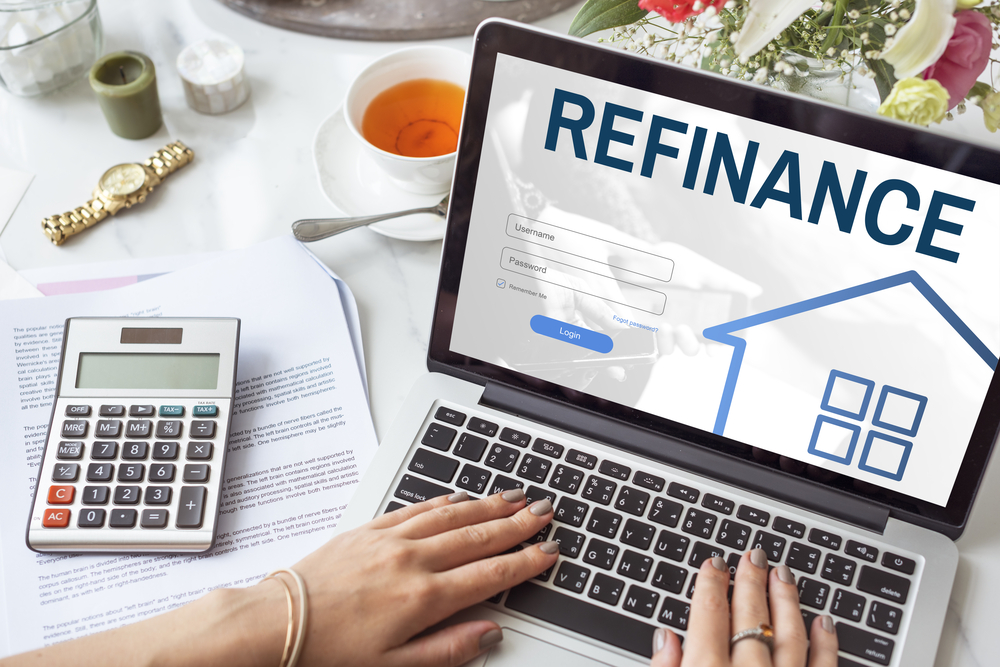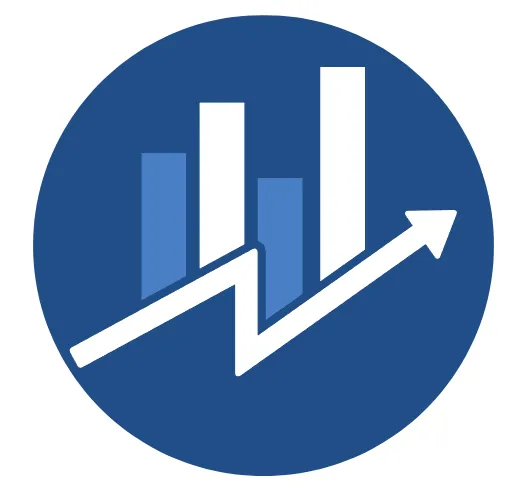
HELOC for Home Improvement | How to Use a HELOC for Home Upgrades

A Beginner’s Guide to Home Buying: First Time Home Buyer Tips

How to Determine if a Cash Out Refinance is Right for You? Things to Consider

Navigating the Mortgage Refinance Journey: How to Refinance Your Home

Understanding the Basics of Cash Out Refinance: A Beginner’s Guide

Veteran Affairs (VA) Loans and Refinancing Options: A Comprehensive Guide

HELOC for Home Improvement | How To Use a HELOC for Home Upgrades
Understanding HELOC: Home Equity Line of Credit
A Home Equity Line of Credit (HELOC) is a revolving credit line secured by your home’s equity. Unlike a traditional loan, a HELOC allows you to borrow up to a certain limit, repay, and borrow again as needed during the draw period, which typically lasts 10 years.
How HELOC Can Be Used for Home Upgrades
Flexible Financing: Use HELOC funds for various home improvements like kitchen remodels, bathroom upgrades, or landscaping. The flexibility means you can draw funds as projects progress.
Potential Tax Benefits: Interest paid on HELOCs used for substantial home improvements may be tax-deductible, though it’s important to consult a tax advisor.
Value Enhancement: Upgrading your home can increase its market value, which could offset the cost of the HELOC and improve your overall investment in your property.
In essence, a HELOC provides a versatile and potentially cost-effective way to finance home upgrades, leveraging your home’s equity to enhance its value and functionality.
Button
To learn more about HELOC for Home Improvement click the button below to book a free consultation with one of our loan officers!
A Beginner’s Guide to Home Buying: First Time Home Buyer Tips
Buying your first home is an exciting milestone, but it can also be a complex process. Here are some essential tips to help you navigate the journey of homeownership:
1. Assess Your Financial Health
Credit Score: Check your credit score and work on improving it if necessary. Budget: Determine how much you can afford by reviewing your income, expenses, and savings.
2. Save for a Down Payment
Aim to save at least 20% of the home’s purchase price to avoid private mortgage insurance (PMI). However, some loans require as little as 3-5%.
3. Explore Mortgage Options
Conventional Loans: Typically require higher credit scores. FHA Loans: Government-backed loans with lower down payment requirements. VA Loans: Available to veterans with no down payment required.
4. Get Pre-Approved for a Mortgage
Pre-approval gives you a clear picture of what you can afford and makes you a more attractive buyer to sellers.
Conclusion
Buying a home for the first time can be daunting, but with careful planning and the right resources, it can also be a smooth and rewarding experience. Take your time, do your research, and seek professional guidance to help you along the way. Happy house hunting!
To learn more about first time homebuying, click the button below to book a free consultation with one of our loan officers!
How to Determine if a Cash Out Refinance is Right for You? Things to Consider
A cash-out refinance can be an effective financial tool, but it's important to assess whether it's the right choice for your situation. Here are key factors to consider:
1. Understand Cash-Out Refinancing
What It Is: Replacing your existing mortgage with a new one for more than you owe, receiving the difference in cash. Uses: Commonly used for home improvements, debt consolidation, or large purchases.
2. Evaluate Your Home Equity
Equity: The difference between your home’s current market value and the amount you owe on your mortgage. Lenders typically require significant equity to qualify.
3. Consider Interest Rates
Current Rates vs. Original Loan: Ensure the new interest rate is favorable compared to your existing mortgage rate. Cost Analysis: Weigh the potential savings against the costs of refinancing, including closing costs and fees.
4. Assess Your Financial Goals
Debt Consolidation: If using the cash to pay off high-interest debts, calculate if this move will actually save you money in the long term. Home Improvements: Determine if the upgrades will increase your home’s value and improve your quality of life.
5. Review Your Credit and Income
Credit Score: Higher scores typically qualify for better rates. Stable Income: Lenders will check your income stability to ensure you can handle the new mortgage payments.
6. Understand the Risks
Longer Loan Term: Refinancing might extend the term of your loan, meaning you could pay more in interest over time. Risk of Foreclosure: Your home is collateral for the loan, so failure to make payments could lead to losing your home.
7. Consult a Financial Advisor
Professional Guidance: A financial advisor can help you assess the pros and cons based on your specific financial situation.
Conclusion
A cash-out refinance can provide financial flexibility and potentially lower your monthly payments, but it’s essential to carefully consider your equity, interest rates, financial goals, and the associated risks. By evaluating these factors and seeking professional advice, you can make an informed decision that aligns with your financial well-being.
To learn more about if a cash out refinance is right for your situation, click the link below to book a free consultation!
Navigating the Mortgage Refinance Journey: How to Refinance Your Home
Refinancing your home can be a smart financial move, offering the potential to lower your interest rate, reduce monthly payments, or access equity for other needs. Here’s a step-by-step guide to help you navigate the mortgage refinance journey:
1. Evaluate Your Financial Goals
Determine why you want to refinance. Common reasons include securing a lower interest rate, shortening the loan term, or tapping into home equity.
2. Check Your Credit Score
A higher credit score can help you qualify for better rates. Obtain your credit report and address any discrepancies or areas for improvement.
3. Assess Your Home Equity
Equity is the difference between your home's current market value and the amount you owe. Having more equity can improve your refinancing options and terms.
4. Research Loan Options
Compare different types of refinance loans, such as rate-and-term refinance and cash-out refinance. Understand the benefits and implications of each option.
5. Book a Free Consultation with Apex Mortgage
Book a free call with our team so we can properly assess your situation and help you!
Understanding the Basics of Cash Out Refinance: A Beginner’s Guide
A cash-out refinance can be a valuable financial tool, allowing homeowners to tap into their home equity for various needs. Here’s a beginner’s guide to understanding how it works and when it might be beneficial for you.
What is a Cash-Out Refinance?
A cash-out refinance replaces your existing mortgage with a new one that’s higher than what you owe. The difference between your new loan amount and your current mortgage balance is given to you in cash.
Example
: If your home is worth $300,000 and you owe $150,000, you might refinance for $200,000. You'd pay off the $150,000 mortgage and receive $50,000 in cash.
Benefits of Cash-Out Refinance
Lower Interest Rates: If current rates are lower than your existing mortgage rate, you can benefit from reduced monthly payments. Access to Funds: Use the cash for home improvements, debt consolidation, education, or other financial needs. Potential Tax Benefits: Interest on the portion of the loan used for home improvements may be tax-deductible.
Considerations Before Refinancing
Credit Score and Financial Health: Ensure your credit score is in good shape to qualify for better rates. Costs Involved: Be aware of closing costs, which can range from 2% to 5% of the loan amount. Loan Terms: Understand how refinancing affects your loan term. Extending the term could mean paying more interest over time. Equity Requirement: Lenders typically require you to maintain at least 20% equity in your home post-refinance.
Steps to Take
Evaluate Your Needs: Determine why you need the cash and if refinancing is the best option. Check Your Home’s Value: Use online tools or get an appraisal to understand your home’s current market value. Shop Around: Compare offers from multiple lenders to get the best rates and terms. Prepare Documentation: Gather necessary documents like pay stubs, tax returns, and information about your current mortgage.
Conclusion
A cash-out refinance can provide financial flexibility and leverage your home’s equity effectively. By understanding the basics and evaluating your financial situation, you can make an informed decision about whether this refinancing option is right for you. Always consult with financial advisors or mortgage professionals to ensure you’re making the best choice for your circumstances.
To find out if a cash out refinance is right for you, click the link below and we will get in touch!
Veteran Affairs (VA) Loans and Refinancing Options: A Comprehensive Guide
Veteran Affairs (VA) loans are a powerful financial tool designed to help U.S. veterans, active-duty service members, and eligible surviving spouses achieve homeownership and financial stability. Here’s a comprehensive guide to understanding VA loans and the refinancing options available.
What Are VA Loans?
VA loans are mortgage loans guaranteed by the U.S. Department of Veterans Affairs. They offer several benefits over conventional loans, including:
No Down Payment: One of the most significant advantages of VA loans is the ability to purchase a home with no down payment, making homeownership more accessible. Competitive Interest Rates: VA loans typically offer lower interest rates compared to conventional loans, which can save borrowers a substantial amount over the life of the loan. No Private Mortgage Insurance (PMI): Unlike conventional loans, VA loans do not require PMI, even with a low or no down payment. This can result in significant monthly savings. Flexible Credit Requirements: VA loans often have more lenient credit requirements, allowing veterans and service members with less-than-perfect credit to qualify. Limited Closing Costs: The VA limits the amount of closing costs that veterans and service members can be charged, making the home buying process more affordable.
Types of VA Loans
Purchase Loans: These loans help veterans buy a home at competitive interest rates without requiring a down payment or PMI. Interest Rate Reduction Refinance Loan (IRRRL): Also known as the VA Streamline Refinance, this option allows veterans to refinance an existing VA loan to a lower interest rate with minimal documentation and no appraisal required. Cash-Out Refinance: This loan allows veterans to refinance their mortgage and take out cash from their home’s equity. It can be used to pay off debt, fund education, or make home improvements.
Refinancing Options
Interest Rate Reduction Refinance Loan (IRRRL)Purpose: Lower your interest rate and reduce monthly payments. Benefits: Simplified process, often with no appraisal or credit underwriting package. Cash-Out Refinance Loan Purpose: Access your home’s equity to get cash for any purpose. Benefits: Refinance up to 100% of your home’s value, consolidate debts, or fund large expenses.
Steps to Obtain a VA Loan or Refinance
Determine Eligibility: Ensure you meet the service requirements for a VA loan. Obtain a Certificate of Eligibility (COE): This document verifies to lenders that you qualify for a VA loan. Find a VA-Approved Lender: Work with lenders who specialize in VA loans to get the best terms.Apply for the Loan: Complete the application process with your chosen lender. Close on the Loan: Once approved, finalize the loan with a closing process similar to other mortgage loans.
Conclusion
VA loans and refinancing options provide veterans and service members with valuable opportunities to achieve homeownership and financial stability. With benefits like no down payment, lower interest rates, and flexible credit requirements, VA loans are an excellent choice for those who qualify. Whether you’re purchasing a home or looking to refinance, understanding the options available can help you make the best financial decisions for your future.
By leveraging the unique advantages of VA loans, veterans and service members can secure affordable and favorable mortgage terms, ensuring long-term financial well-being.
To learn more about VA loans, click the link below and we will be in touch!
Answer the quick survey below for a free consultation with one of our loan officers!
We never spam. Your info is safe with us!

